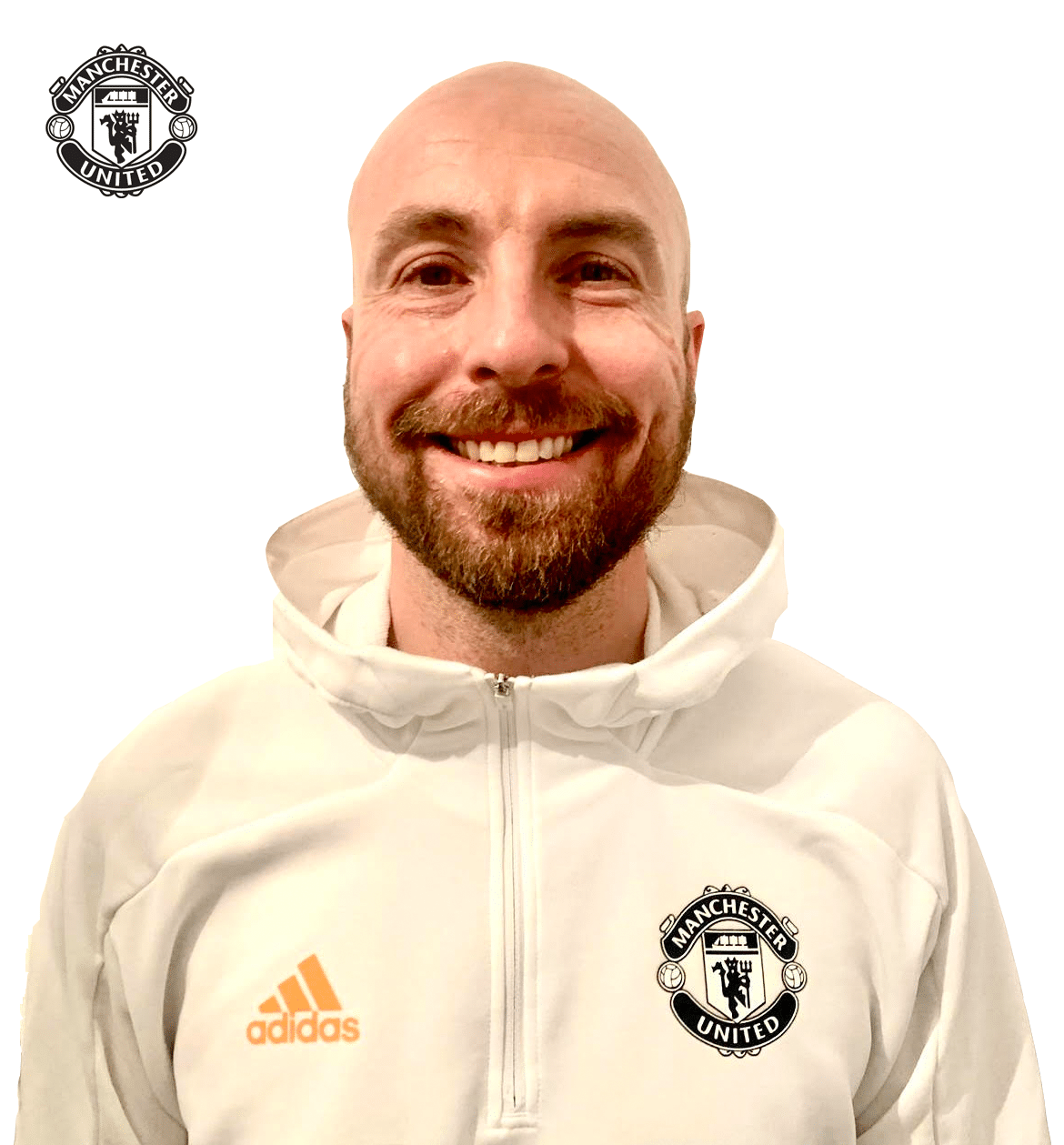



Child-Centric and Development Culture
Featuring Manchester United Academy Coach, Neil Harris.
Neil Harris is a Manchester United Academy Coach within the Youth Development Phase. His role is key in the development of young players (U13) within their Academy program. Neil has been working within the Manchester United Academy for nearly 17 years now, working with players of all ages ranging from U11 to U16s. Additionally, he has coached adult football as well working with the men’s team at Manchester University.
“Teamwork is the ability to work together toward a common vision. The ability to direct individual accomplishments toward organizational objectives. It is the fuel that allows common people to attain uncommon results.” – Andrew Carnegie
Creating a Culture
Listening to Neil discuss Manchester United’s approach to youth development, it’s evident their emphasis on the culture they have created through their storied past. For those that are unaware, Manchester is located in a part of England that is considered working class, and as Neil states the geographic culture has developed “hardy” people. Not to mention, past coaches and players who lived and breathed the United badge till the very end. So it’s no surprise that today there is an identity within the organization from the coaching staff to the players to embody things like relentlessness, hunger, drive, respect, and humility (35:15- 38:15)
As Neil describes, the academy coaching staff are constantly being reminded of the legacy they need to carry on, set forth by those before them. They understand they must carry the fire and pass along Manchester United’s legacy beyond what happens on the pitch. They carry the torch to eventually pass it on to the next generation of Manchester United family. (41:12-43:00)
With this cultural foundation set in place, soccer is the tool used to pass on the legacy, First, it’s about the well-being of the community and the individual. Winning is not discussed in this culture of development of the individual. Neil recounts that in his 17 years, he does not remember a time when he felt pressure to win, asked the score, or even asked who scored (20:54-22:00)
Child-Centric Approach
With their culture emphasizing the well-being of the individual, it’s easy to see how they create a true child-centric environment.
“We’re not viewing them as players first, not viewing them as assets. We’re viewing them as children, young children, who we’re trying to create a connection with. So the first thing is that pastoral care. Making sure that you’re able to make those connections and look after them, and make sure they are having a really enriching experience whilst they are with us. Some of their journey will end in the first team, some of their journeys will end before then. So whilst they are with us on their journey, we want them to have an unbelievable experience… It’s a marathon, it’s not a sprint. We have to just take it session by session, week by week, and just really enjoy it.” (18:01-19:45)
If we zoom in even further to the environment design of sessions, Neil discusses the importance of making connections with players and understanding the group before discussing specific activities or training session plans.
“I think it’s tough for young coaches because there is so much information on the internet, whether it’s youtube videos, coaching manuals, there’s so many question resources, websites and things. You can get consumed by it and you can take your eyes off the prize. It’s fantastic to know these sessions but if can’t relate them relative to the age group that you’re working with and do it with humility and pastoral care then doesn’t really mean much. You can know all the sessions in the world, but if you don’t know how to deliver them at a certain level, you’re going to struggle.” (22:24-23:05)
Neil also touched on the importance of creating a training environment that players want to be a part of. The coaching staff at Manchester United Academy take that responsibility and believe that if a player doesn’t want to be at training, it’s not on them, it’s on you. This is a very valid point because we often forget that soccer is a game that is meant to be enjoyed, so we must ask ourselves if players aren’t enjoying training then training must not be replicating the game that is inherently fun.
“Training’s got to be like Christmas Day. Any kids that are coming in and not wanting to be there, we’re not doing something right. It’s not them. We’re not doing something right. If we haven’t created the right environment for them to come in, then we’re not doing something right. It’s a case of creating the right environment and letting them be free and express themselves.” (38:15-39:20)
Strive for Development
As was mentioned earlier, winning becomes a second priority to the development of the person. Neil discusses two ways that they attempt to achieve development for each of their players.
Firstly, they approach training from an individual standpoint. They strongly believe that they have to prepare players for life after Manchester United or with the first team which means that they need to prepare their players for all kinds of situations they may face. This might mean that they need to play in different positions, within a different system, under different conditions, etc. To do so effectively, they focus on the individual within the team. They will create individual objectives (take on 5 players, don’t give the ball away in exercise, etc) for each player to attempt in training and games. This gives individualized opportunities to get better every time they step on the pitch (29:45-33:38 and 45:30-48:40).
Secondly, as their culture reflects, they try to build resilience in every player by purposefully creating setbacks and bumps in the road for them. They might do this by playing them up a year to have to face stronger/faster players, intentionally not starting players to see how they react, playing them in different positions that are out of their comfort zone, etc. These setbacks are used as opportunities to see how a player reacts to adverse situations (52:45-55:30 and 57:30-1:01:20).
Reflection
Neil’s insight provides a picture of development that focuses on the person before the player. Through an organizational culture that is rooted from the community and is reflected in the way that they play, they are able to provide their players countless opportunities for growth, as people and players. Not to mention, it’s extremely refreshing to see an academy forego the search for results in an attempt to improve their players. Neil’s dedication to helping his players be more resilient, driven, humble, and all in all pillars in their communities is extremely inspiring.
CRYSC Final Thoughts
Neil’s talk provides us some actionable points we can enact ourselves. He also leaves us with several questions that should put us on the right track towards true development.
- Are you serving the person or the player?
- Are you creating setbacks for players to grow from?
- Are you creating a training environment your players will enjoy?
- Are you focusing on individual development rather than results?
We want to thank Neil for his time and insight!



